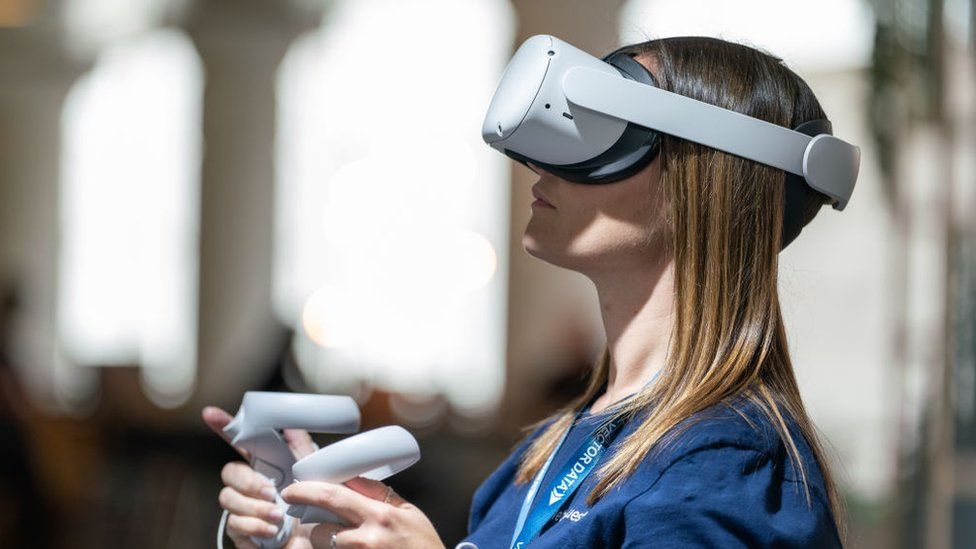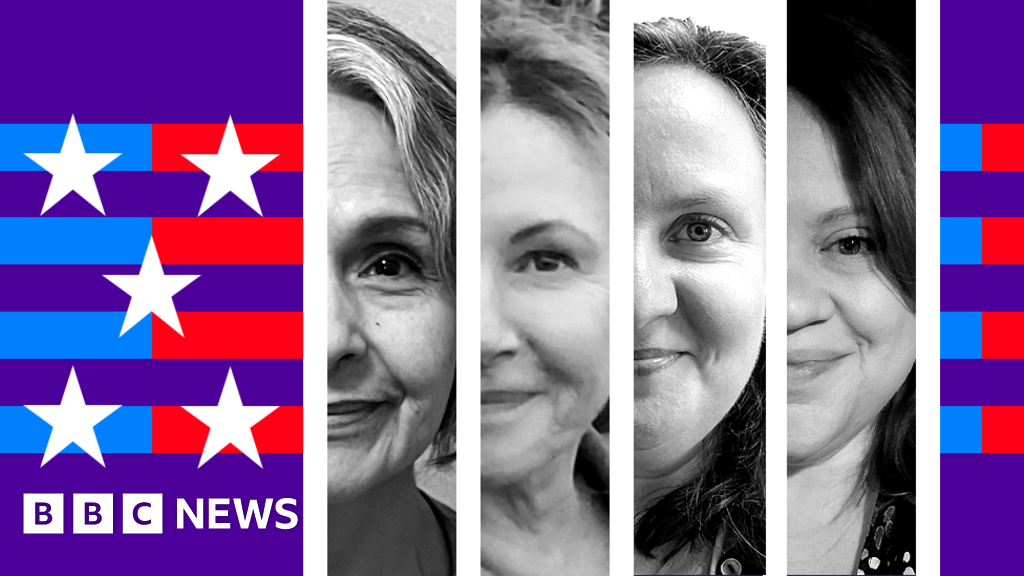ARTICLE AD BOX
 Image source, Getty Images
Image source, Getty Images
By James Clayton
North America technology reporter
There was a time before ChatGPT when the tech world was talking about something entirely different.
For a while it dominated tech news. A virtual reality world that would be so immersive, so engaging, that we would want to spend part of our lives in it.
Driving the metaverse narrative was Mark Zuckerberg.
The tech billionaire was so committed that in October 2021 he changed Facebook's name to Meta.
"The defining quality of the metaverse will be a feeling of presence," the Meta boss said, announcing the change.
"Feeling truly present with another person is the ultimate dream of social technology. That is why we are focused on building this.
"In the metaverse, you'll be able to do almost anything you can imagine," he said.
No one could accuse him of a lack of ambition.
But almost two years on, Zuckerberg has been forced to deny that he is now jettisoning the idea.
"A narrative has developed that we're somehow moving away from focusing on the metaverse," he told investors in April. "So I just want to say upfront that that's not accurate."
On Wednesday the company holds its annual VR event called Meta Connect.
It's a chance, perhaps, for Zuckerberg to again explain his reasoning for taking an extremely profitable social media company and diverting its focus to an extremely unprofitable VR venture.
How unprofitable? Well, the most recent figures from Meta are eye-watering.
Reality Labs - which as the name suggests is Meta's virtual and augmented reality branch - has lost a staggering $21 billion since last year.
Part of the losses reflect long-term investment. Meta wasn't expecting short-term returns. But the worrying fact for the company is that, so far, there is very little evidence that this enormous punt will work.
Horizon Worlds, a game published by Meta, is about as close as the company has got to creating a metaverse.
Users can hop into different settings - cafes, comedy clubs, night clubs, basketball courts - to hang out and play games.
Meta claims it has 300,000 monthly users: tiny when compared to the billions of people on Facebook and Instagram.
And at any one time, vastly fewer people than that are actually playing the game.
User reviews complain of empty worlds, and say there simply aren't enough people to make it fun. Or if there are people, they're often children.
Image source, Getty Images
Image caption,Meta is bringing Horizon World to mobile, so you will not need a headset to play
But the biggest criticism is that it looks a bit rubbish - akin to graphics from the 2006 Nintendo Wii rather than the lavish VR experience that Zuckerberg promised.
As for Meta's virtual reality headsets, it's hard to see how current technology is anything close to the vision the company's boss has articulated.
Meta's headsets have sold more than 20 million units, according to a Verge story from earlier this year. That isn't bad - and its Quest 2 headset received positive reviews.
But in sheer numbers, there are plenty of games consoles that have fared better.
Sony claims that its PlayStation 5 has sold 40 million units, for example.
And remember, Zuckerberg isn't comparing success to a games console. He wants to revolutionise how we all live, work and, as he would say, "connect".
To put it bluntly, VR is still fringe. It's not the way most people play games, and it definitely isn't how most people choose to spend their time. Real life is stubbornly appealing.
In July, on an investor call, someone asked Zuckerberg why he'd spent all this money. "Help us understand," they said.
Zuckerberg said he understood the frustration, and admitted: "I can't guarantee you that I'm going to be right about this bet. I do think that this is the direction that the world is going in."
And so, on Wednesday, we'll hear from Zuckerberg as he attempts to breathe life into a concept in desperate need of oxygen.
We'll likely hear much more about Meta's new headset, the Quest 3 - and how Horizon Worlds is moving to mobile and desktop (so you won't have to use a headset to play).
We'll hear a range of new AI announcements, too.
No doubt we'll also hear again that the metaverse is a long-term project - that we haven't seen the real metaverse yet.
Zuckerberg most certainly still believes in it - as he expresses through Meta's cheque book. In July he said that Reality Labs is expected to post even bigger losses next year.
The metaverse, then, is still very much alive at Meta - but most of the rest of the tech world appears to have moved on.

 1 year ago
15
1 year ago
15








 English (US)
English (US)